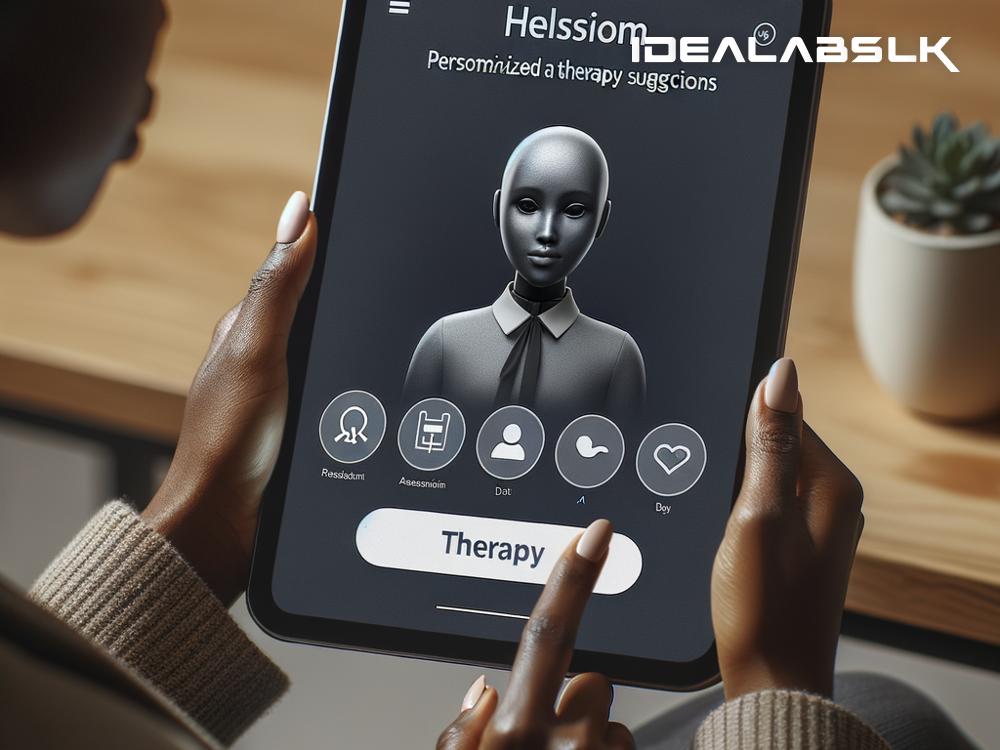Modern life, with its breakneck pace and myriad pressures, has seen mental health issues climb the global agenda. More people than ever before are reaching out for help, seeking solace and solutions to life’s emotional hurdles. Yet, the traditional model of delivering mental health services, characterized by face-to-face consultations and long waiting lists, is increasingly seen as cumbersome and inadequate to meet this rising tide of need. Enter Artificial Intelligence (AI), a technological marvel stepping into the breach, transforming how mental health services are delivered and experienced.
AI, with its ability to parse vast amounts of data and learn from interactions, is becoming a cornerstone of innovative mental health solutions. From chatbots that lend an empathetic ear to algorithms predicting potential mental health crises, the landscape of therapy and support is undergoing a seismic shift. The digital revolution is making mental health support more accessible, personalized, and immediate than ever before.
Chatbots and Virtual Therapists: A Listening Ear at Your Fingertips
Imagine having 24/7 access to a supportive entity patiently listening to your worries and offering guidance. AI-powered chatbots and virtual therapists are making this a reality. Services like Woebot or Wysa offer judgment-free zones where individuals can express their feelings and receive instant feedback and coping strategies. These digital entities are designed with the input of psychologists to provide evidence-based cognitive behavioral therapy (CBT) techniques. While they don’t replace human therapists, they offer a valuable outlet for those who might wait to seek help or who prefer the anonymity the digital world affords.
Predictive Analytics: Forecasting Mental Health Crises
AI’s capacity to sift through and analyze vast datasets is being harnessed to predict mental health episodes before they occur. By monitoring patterns in speech, social media activity, and even smartphone usage, AI algorithms can alert users and healthcare providers to impending mental health crises. This proactive approach can facilitate timely intervention, potentially averting severe episodes. It’s a promising frontier, offering a glimpse into a future where mental health care is as much about prevention as it is about cure.
Personalized Therapy: Tailored Techniques for Tailored Needs
One of AI’s greatest strengths is its ability to tailor its output to the individual user. In the context of mental health, this means personalized therapy plans that adapt to your progress and changing needs. Apps and platforms utilize AI to track your mood, suggest activities or exercises based on your current state, and adapt therapy sessions to target your specific challenges. This bespoke approach ensures that the support you receive is always aligned with what you need most, maximizing the effectiveness of the intervention.
Accessible and Stigma-Free: Breaking Barriers to Support
Accessibility is perhaps one of the most crucial ways AI is transforming mental health services. For many, barriers such as cost, location, and stigma prevent them from seeking help. Digital tools powered by AI mitigate these barriers, offering low-cost, location-independent services that can be accessed privately. This has the potential to democratize mental health support, making it available to anyone with a smartphone or internet connection, and going a long way toward de-stigmatizing mental health issues.
The Future and Its Challenges
As with any emerging technology, the integration of AI into mental health services is not without its challenges. Concerns about privacy, data security, and the potential for technology to misunderstand or oversimplify complex human emotions are valid. Moreover, the reliance on AI should not diminish the value of human connection in therapy, which remains a crucial component of healing and growth.
Nevertheless, the potential benefits of AI-assisted mental health services are undeniable. As technology evolves and these challenges are addressed, we stand on the cusp of a new era in mental health support. One where help is not only more accessible but is also more responsive, personalized, and predictive than ever before.
AI is not a panacea, nor should it aim to replace the nuanced understanding and empathy of human therapists. Instead, it offers powerful tools that, when used judiciously, can complement existing services and expand the reach of mental health support. In doing so, AI is not just transforming the delivery of mental health services—it’s reshaping our very approach to mental well-being, making the journey from struggle to solace a little less daunting for everyone.

